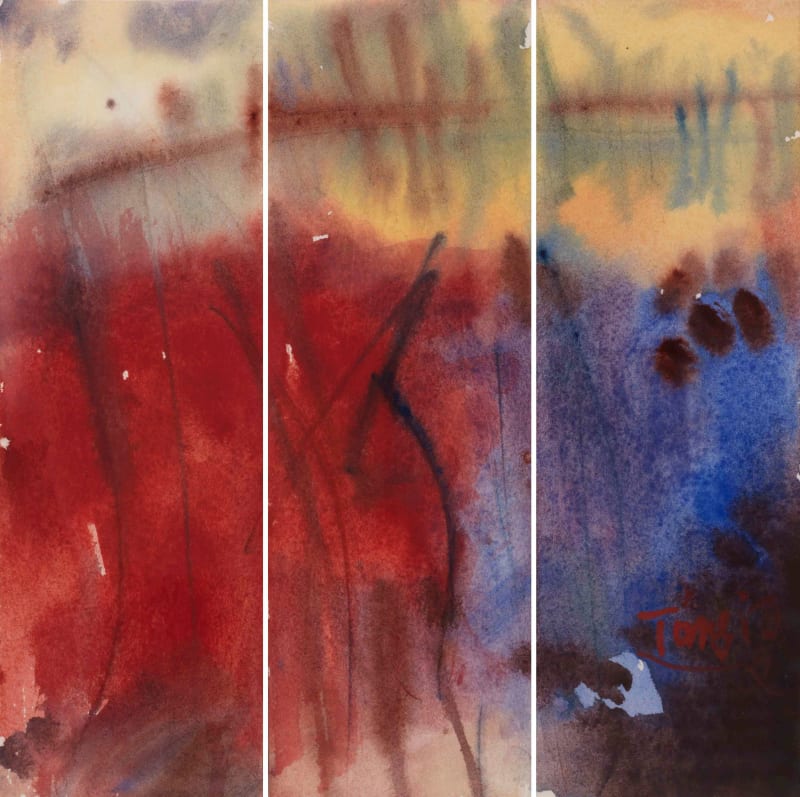T’ang Haywen, born in 1927, Xiamen, China. He lived and worked in Paris. He died in 1991, Paris.
T'ang Haywen belongs to a generation of artists whose lives have been woven between Asia and Paris. Arriving in France in 1948, T'ang Haywen was already familiar with calligraphy, having learned it from his grandfather when he was young.
In Paris, his style took a different direction as he encountered the artists of this new scene, and in particular the ideas of abstract expressionism. After numerous trips, notably to Canada and Morocco, T'ang Haywen opened a new chapter in his work in 1960, this time inspired by both the Taoist tradition and the great masters such as Henri Matisse and J. M. W. Turner. His works became lighter, interested in the interaction of forms like paper cut-outs.
From 1970 to 1991, T'ang Haywen continued to perfect his technique, always striving to give his works on paper the delicacy and lightness of his gesture. Several major exhibitions, notably at the Oceanographic Museum in Monaco, the Taipei Fine Arts Museum in Taiwan, the Musée Guimet in Paris and the Shiseido Foundation in Tokyo, have demonstrated the importance and originality of his work.
We thank Philippe Koutouzis & T’ang Haywen Archives for its support and advice.
